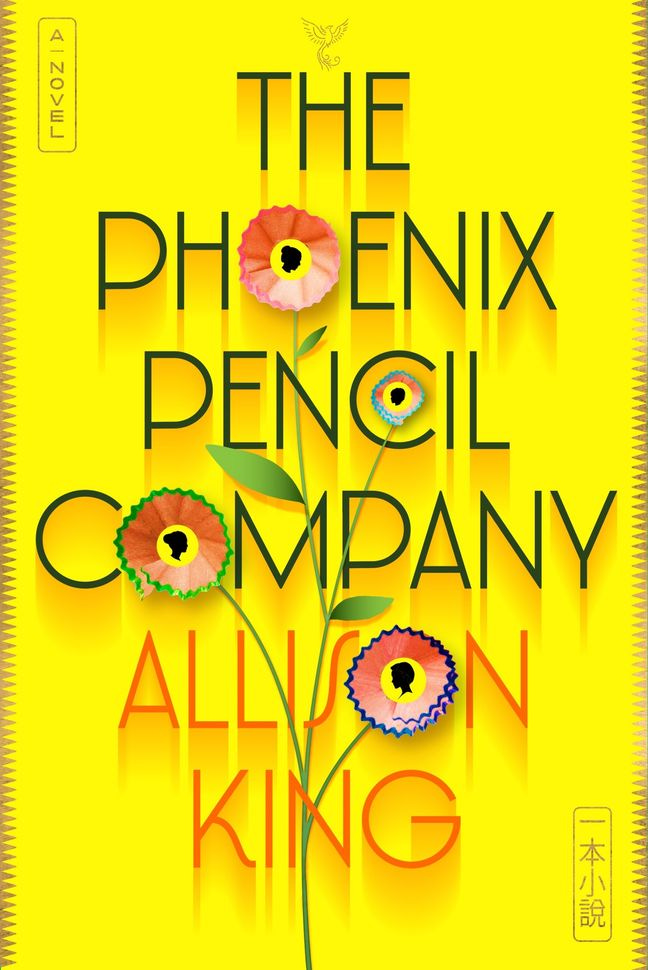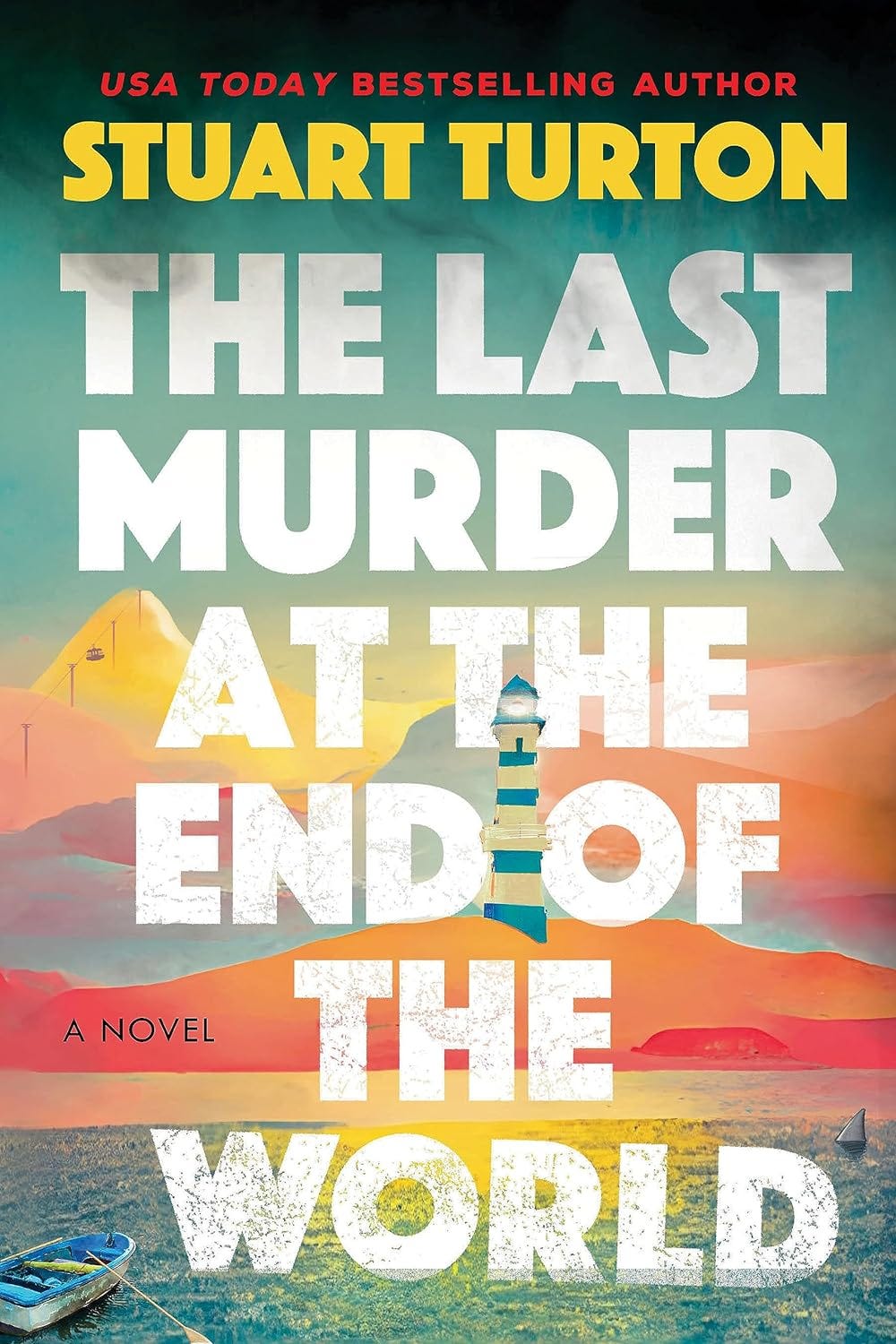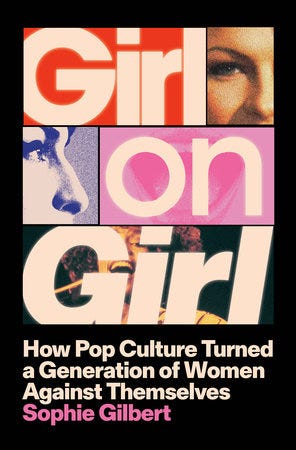You Have a Favorite Pencil Brand
Want a peek at a potential future or to reassess 2000s culture
Hi friends,
If anyone has a cool $1.6 million lying around, the “Book House,” a property with floor-to-ceiling bookshelves filled with 7,000 hardbacks in Columbus, Ohio is up for sale. It features eight bedrooms, six bathrooms and the capacity to sleep 24 guests.
Maybe some enterprising book lover will buy it and turn into a book retreat site?
And, now, what to read if …
You Have Strong Feelings About Writing Instruments
The Phoenix Pencil Company by Allison King
I have a favorite pen — the Pilot G-2, if you were curious — and also have a giant set of gel pens that I use to write my color-coded to-do list. (I know.) I rarely pick up a pencil, but when I do my preference is a Ticonderoga. My guess is I sound a little nuts to many of you, but the writers reading are nodding along. If you too know the feeling of finding a great writing implement, you’ll want to read Allison King’s The Phoenix Pencil Company.
For a year, Monica Tsai, a freshman at Swarthmore College, has scoured the internet for her grandma Yun’s long-lost cousin Meng. One day, the computer program she’s helping to build finds a random social post from a woman her age, Louise, describing her meeting with Meng in China. Louise brings back a pencil from Meng for Monica, and the gift leads to a shocking discovery. Her family has the power to “reforge” pencils, bringing the memories they contain back to life. It was a power that kept Yun and Meng alive during the wars, as they became intelligent assets and betrayed other people to stay alive.
The novel alternates between Monica’s story and Yun’s attempt to write down her history — with a pencil of course — before Alzheimer’s takes away her memory altogether. I was entranced by The Phoenix Pencil Company. King seamlessly weaves these two timelines together, transporting us to Shanghai and beyond. As Liz Moore, author of my beloved Long Bright River, said, "I loved this wildly inventive novel and its exploration of how technology and humanity can intersect in deeply meaningful ways. Allison King is a talent to watch."
Bingo boxes this book checks: Debut
You Want to Go Back to the Future
The Last Murder at the End of the World by Stuart Turton
“Back to the Future” — one of my all-time favorite movies — celebrates its 30th anniversary this week. (My ranking for those curious: 1,3,2.) If you’d like to rev up your own DeLorean to 88 MPH and travel to a (dystopian) future, grab Stuart Turton’s The Last Murder at the End of the World.
One hundred and twenty-two villagers and three scientists live on an island. They are the only ones left after a deadly fog destroyed the world and killed everything it touched. The islanders contentedly spend their days farming, fishing, enjoying each other’s company and following their curfew. That is, until one of the scientists is found stabbed to death. There’s never been a murder — or any crime — on the island, but if the villagers don’t find the murderer within 107 hours, the security system keeping the fog away from their sanctuary will shut down. Making it even harder, the same system has wiped everyone’s memories of the previous night.
The Last Murder at the End of the World is one of those books I’ve been excited to share with you since I read it. It’s a quirky mix of sci-fi, mystery and dystopian novel and its narration from “Abi,” an AI linked to the mind of each villager, gives it a distinctive feel.
You Share My Obsession with the Wronged Women of the 2000s
Girl on Girl by Sophie Gilbert
As I’ve written before, I have a fascination with the on-going conversation about how poorly society treated female celebrities in the 2000s (see: Advika and the Hollywood Wives by Kirthana Ramisetti, Laura Hankin’s The Daydreams, Birds of California by Katie Cotugno, Sarah Ditum’s Toxic and Kate Flannery’s Strip Tees). Sophie Gilbert’s essay collection Girl on Girl is a searing addition to this growing canon, examining how the era’s movies, TV, magazines and more promoted “objectification, sexualization, and infantilization.”
Drawing on examples from tabloids, ever-prevalent confessional essays and reality TV, Gilbert argues that internet porn, which became widely accessible during this era, transformed pop culture — and not for the better. Listening to Girl on Girl, narrated by the author, made me feel less crazy, or at least less alone, about how the culture that surrounded my teen years still shapes me today. Her close reading of “American Pie,” where a teen boy faces no punishment for secretly broadcasting a teen girl undressing, while she is ostracized, is a standout essay, as is her exploration of the musical shift from Lilith Fair to the Spice Girls to Eminem.
I thought about Girl on Girl amid the recent fracas over the cover for Sabrina Carpenter’s new album, Man’s Best Friend. In it, as Louis Staples writes for Harper’s, “Carpenter crouches on the floor, channeling a dog, while an anonymous man pulls on her signature blond locks.” The internet predictably erupted into a conversation about whether Carpenter’s pose was an act of self-empowerment, a chance to cater to the male gaze or a biting cultural satire. And while Gilbert didn’t write about this most recent dust-up, she did write about the new class of female popstars a few months back, noting “Taking heed of what happened to the women who came before them, today’s pop icons also seem to sense all the ways in which performing for the male gaze is a trap. Instead, they celebrate their sexuality on their own terms, often in absurdist, lavishly overstated style.” If that analysis resonated with you, you’ll want to put Girl on Girl at the top of your list.
Bingo boxes this book checks: Short story or essay collection
What to Read If is a free weekly book recommendation newsletter. Need a rec? Want to gush about a book? Reply to this email, leave a comment or find me on Instagram or Threads.
If you’re reading this on Substack or were forwarded this email, and you’d like to subscribe, click the button below.
Disclosure: I am an affiliate of Bookshop.org and I will earn a commission if you click through and make a purchase.







The Phoenix Pencil Company sounds incredible. Thanks for sharing it. Off to read!
I love the cover of the Phoenix Pencil Company as well as the storyline. Re the second rec, have you read Metronome? Maybe it was you who recommended it, come to think of it. It has similar themes and I enjoyed it.